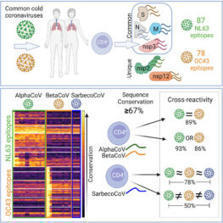LA JOLLA, CA—Scientists at La Jolla Institute for Immunology (LJI) are investigating how the immune system’s T cells react to a wide variety of coronaviruses, ranging from SARS to common cold coronaviruses.
Research and publish the best content.
Get Started for FREE
Sign up with Facebook Sign up with X
I don't have a Facebook or a X account
Already have an account: Login

Page Ressources et Actualités du DIU immunologie et biothérapies
Curated by
Gilbert C FAURE
 Your new post is loading... Your new post is loading...
 Your new post is loading... Your new post is loading...

MRC press office's curator insight,
May 23, 2014 5:34 AM
Professor Mike Blackman, a malaria researcher at the MRC National Institute for Medical Research, said: “The study is quite an important step forward and potentially raises the prospect of this becoming a vaccine candidate and combining it with other vaccine candidates… but they still have a long way to go.” |

Krishan Maggon 's curator insight,
May 30, 2016 7:32 AM
Int Immunol. 2016 May 28. pii: dxw027. [Epub ahead of print] The present status and future prospects of peptide-based cancer vaccines. Hirayama M1, Nishimura Y2.
|











